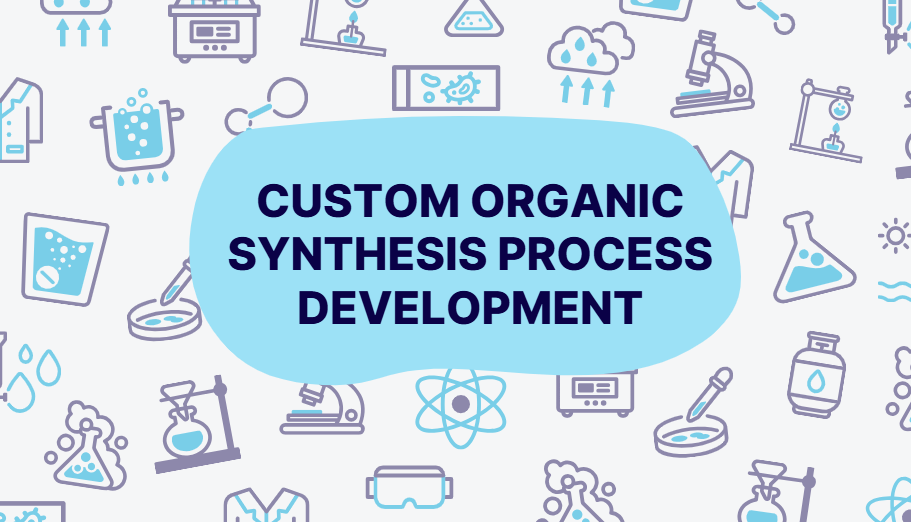
Introduction
Custom polymer synthesis has become a cornerstone for various industries, including healthcare, electronics, energy, and sustainability. This evolving sector is fueled by growing demand for tailored materials that meet specific performance criteria, regulatory compliance, and environmental considerations.
In this article, we analyze the market dynamics, trends, challenges, and future projections of the global custom polymer synthesis
1. Market Size and Growth Potential
Current Market Overview
The global custom polymer synthesis market was valued at approximately $10 billion in 2023, with a compound annual growth rate (CAGR) of 7-9% projected through 2030. Key factors driving growth include:
- Increasing applications in healthcare and drug delivery.
- Rising demand for sustainable materials.
- Advancements in polymer technology, including nanostructured and functional polymers.
Explore why polymer synthesis plays such a key role in making these advanced materials possible – The Importance of Polymer Synthesis in Modern Science and Technology
Regional Insights
- North America: Leads in innovation, driven by strong demand in pharmaceuticals and electronics.
- Europe: Focused on sustainable polymers due to stringent environmental regulations.
- Asia-Pacific: The fastest-growing region, fueled by manufacturing, automotive, and packaging industries.
- Middle East & Africa: Emerging markets with opportunities in construction and oil & gas.
2. Key Trends Shaping the Industry
2.1 Sustainability as a Driving Force
The shift towards eco-friendly polymers is transforming the market. Companies are focusing on biodegradable polymers, bio-based alternatives, and circular economy solutions.
- Example: Bio-derived polyethylene (PE) and polylactic acid (PLA) are being adopted in packaging and agriculture.
- Market Impact: The biodegradable polymer segment is expected to grow at a CAGR of over 12% by 2030.
The foundation of eco-friendly polymers starts with the right monomers, the guide Monomer Selection Strategies for Custom Polymer Synthesis explains how.
2.2 Integration with Advanced Technologies
Emerging technologies such as AI, machine learning, and 3D printing are revolutionizing polymer design and production.
- AI enables rapid prototyping by predicting polymer properties based on molecular structure.
- Additive manufacturing requires polymers with precise flow and curing properties.
Here’s a closer look at how artificial intelligence is being used to create better, more efficient polymers 👉 How AI Is Revolutionizing Custom Polymer Synthesis
2.3 Functional Polymers for Specialized Applications
The demand for polymers with unique properties, such as conductivity, self-healing, or responsiveness to external stimuli, is growing.
- Example: Conductive polymers for flexible electronics.
- Application: These materials are pivotal in renewable energy, IoT devices, and medical diagnostics.
3. Challenges and Opportunities
Challenges
- Cost Constraints: Custom polymer synthesis can be expensive, particularly for small-scale production.
- Regulatory Hurdles: Stringent safety and environmental regulations, especially in the EU and US, increase development timelines.
- Technical Complexity: Developing polymers with specific molecular structures demands advanced expertise and equipment.
Opportunities
- Healthcare Applications: Innovations in drug delivery systems, biocompatible materials, and tissue engineering offer significant growth potential.
- Sustainability Initiatives: Governments and industries are investing heavily in green materials, opening avenues for biodegradable and recyclable polymers.
- Collaboration and Outsourcing: Custom polymer synthesis contract research organizations (CROs) are bridging the gap for startups and mid-sized firms by offering expertise and scalable solutions.
See how current challenges are actually creating new opportunities for innovation and growth 👉 Top Challenges and Opportunities in Custom Polymer Synthesis
4. Industry Applications Driving Growth
4.1 Pharmaceuticals and Biotechnology
Custom polymers are transforming drug delivery systems, enabling targeted therapies and controlled release mechanisms.
- Example: PEGylated polymers enhance drug stability and solubility.
- Market Impact: The pharmaceutical polymer market is expected to reach $5 billion by 2028.
Want to know how polymer science supports pharma and biotech? Start with this in – depth look at deuterated polymers
4.2 Electronics and Advanced Materials
The demand for lightweight, durable, and functional polymers is surging in the electronics sector.
- Example: Polymers used in flexible OLED screens and dielectric layers for microelectronics.
4.3 Packaging and Consumer Goods
Sustainable packaging solutions, such as bio-based polymers, are becoming mainstream in response to consumer demand and regulatory pressures.
4.4 Energy Sector
Custom polymers are critical in renewable energy technologies, such as fuel cells, solar panels, and energy storage systems.
- Example: Polymer membranes for hydrogen fuel cells.
5. Future Outlook: Trends Beyond 2025
- Smart Polymers: Materials that adapt to environmental conditions, including temperature-sensitive hydrogels for drug delivery.
- Nanocomposite Polymers: Enhanced mechanical, thermal, and electrical properties for advanced manufacturing.
- Global Collaboration: Cross-border partnerships between academia, industry, and CROs to accelerate innovation.
See how innovations in polymer design and development are likely to grow after 2025 👉 Emerging Trends in Custom Polymer Synthesis for 2025 and Beyond
Conclusion
The global market for custom polymer synthesis is poised for significant growth, driven by technological advancements, rising sustainability demands, and expanding applications across industries. However, realizing its full potential will require addressing challenges such as cost, regulatory compliance, and scalability.
For those interested in how his trend extends to the pharmaceutical world, here’s a quick informative read – Why Custom API Synthesis is Essential for Generic and Specialty Pharmaceuticals
For companies looking to capitalize on these opportunities, partnering with specialized service providers like ResolveMass Laboratories Inc. can be a game-changer.
How ResolveMass Can Help
At ResolveMass Laboratories Inc., we offer end-to-end solutions in custom polymer synthesis to help businesses achieve their goals. From sustainable materials to advanced healthcare applications, our expertise ensures you stay ahead of the curve.
- Explore our Custom Polymer Synthesis Services.
- Learn about our Material Characterization Expertise.
- For inquiries, visit our Contact Us page.
References
- Zhang, X., et al. “Advances in Biodegradable Polymers.” Polymer Journal, 2023. DOI: 10.1007/s11224-023-01678
- Gupta, R., et al. “Functional Polymers in Electronics.” Journal of Applied Polymer Science, 2022. DOI: 10.1016/j.polymer.2022.09.012
- Kim, Y., et al. “Sustainable Packaging Innovations.” ACS Sustainable Chemistry & Engineering, 2023. DOI: 10.1021/sc6001234

